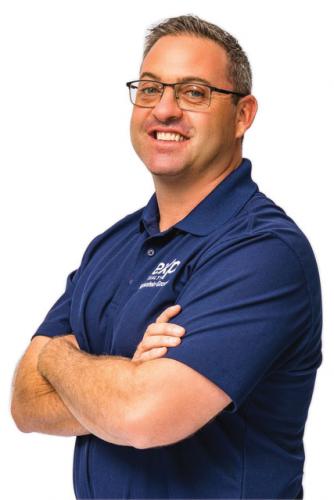
The Secret to Marketing Real Estate to Seniors
Serve your seniors by learning all you can about the different adult communities in your area.
It’s no surprise that an AARP survey listed Florida as the No. 1 state where retirees are moving. Those retirees are likely to be active baby boomers—the 77 million Americans born between 1946 and 1964 —who want an active recreational and social lifestyle, preferably with warm weather.
“It’s important to help seniors ease into the transition to Florida,” says Paul Saperstein, SRES, and team leader of Saperstein Group at eXp Realty in Delray Beach. “Downsizing should be a positive, stress-free move.”

Active adult condominium communities range from a few hundred to thousands of residences configured as apartments or units in low-rise or multistory buildings or attached villas. Upkeep is maintained by the condominium association, so many seniors are attracted to the amenities.
Saperstein, a South Florida agent for 25 years, has helped thousands of seniors find a home in 55+ communities, such as Century Village, Kings Point and Lakes of Delray. Of course, these days, 55 years old doesn’t seem senior and, according to Saperstein, many of the younger side of 60-year-olds are still working remotely and moving in. His expertise is based on knowing what each community offers to suit buyers’ specific needs.
Of course, Saperstein doesn’t limit his marketing to seniors, nor does he limit what he shows seniors to just these communities. But, knowing all the amenities they offer gives him a leg up when it comes to helping seniors find the home of their dreams.
“Quality of life in the larger communities is the main attraction,” notes Saperstein, describing amenities such as a clubhouse with a party room, a theater for movies and shows, and a well-equipped fitness center. Most larger communities also offer classes and activity rooms for cards, arts and crafts, music, along with outdoor walking trails, tennis and pickleball courts. Some even have lakes for fishing. “There’s so much going on, residents can be busy all day long.”
Here are Saperstein’s tips for marketing to seniors:
1. Recognize that seniors like to do business face-to-face or with phone calls. Texts and emails work for many, but not all seniors check their email daily.
2. Be patient. It can take up to a year to build a relationship and create trust. Send information regularly on communities and neighborhoods to help buyers make quality decisions.
3. The key to successful matching is to listen carefully. Discuss their needs, hobbies and sports they play. Ask if they can see themselves using the gym, pools and other amenities. Find out if it’s important to be close to medical facilities or have access to community transportation options if they’re not going to drive.
4. Advise them of the condominium association approval process for buying or renting. Most communities run background checks and consider financial records. Even with money in the bank, buyers and prospective tenants may have to show regular income to cover association maintenance.
5. Strict condo regulations can be challenging for buyers moving from a private home. Make them aware that they may have to accept association rules, such as no pets.
6. Find out if they want their children to be involved in the buying (or selling) process. If so, ask them to introduce you so you can keep them in the loop.
It’s not just about condos
Florida has a wide choice of 55 and older single-family home developments appealing to seniors looking for a luxury lifestyle with more living and guest space than condominiums offer. Many are set in lake-studded landscaped acres, convenient to urban centers, highways and beaches.
Zelda Greenberg, SRES, co-founder of Legacy Realty Group North Florida, Inc., specializes in matching buyers to resort-style living in three active adult developments, including Del Webb Nocatee.

“Buyers like the gated, manned security, the exclusive use of world-class amenities and dozens of clubs for every interest.” says Greenberg. “Low-maintenance, one-story homes with an attached garage are most sought-after.”
Many buyers are from out-of-state, so she communicates with them frequently. “I send them activity calendars and community newsletters,” notes Greenberg. “I get a lot of referrals from people wanting to live close to friends in the community.”
Here are Greenberg’s marketing tips:
1. Pet-lover appeal. Single-family home communities are usually pet-friendly, with dog parks and other facilities.
2. Aging-in-place benefits. Emphasize the benefits of homes equipped with everything from grab bars and walk-in showers to sensor lights and the latest technology for safe senior living.
3. Get familiar with association rules. Review homeowner association (HOA) rules for each community, as they can vary considerably on different issues.
Helen Hill is a Boca Raton-based freelance writer.
